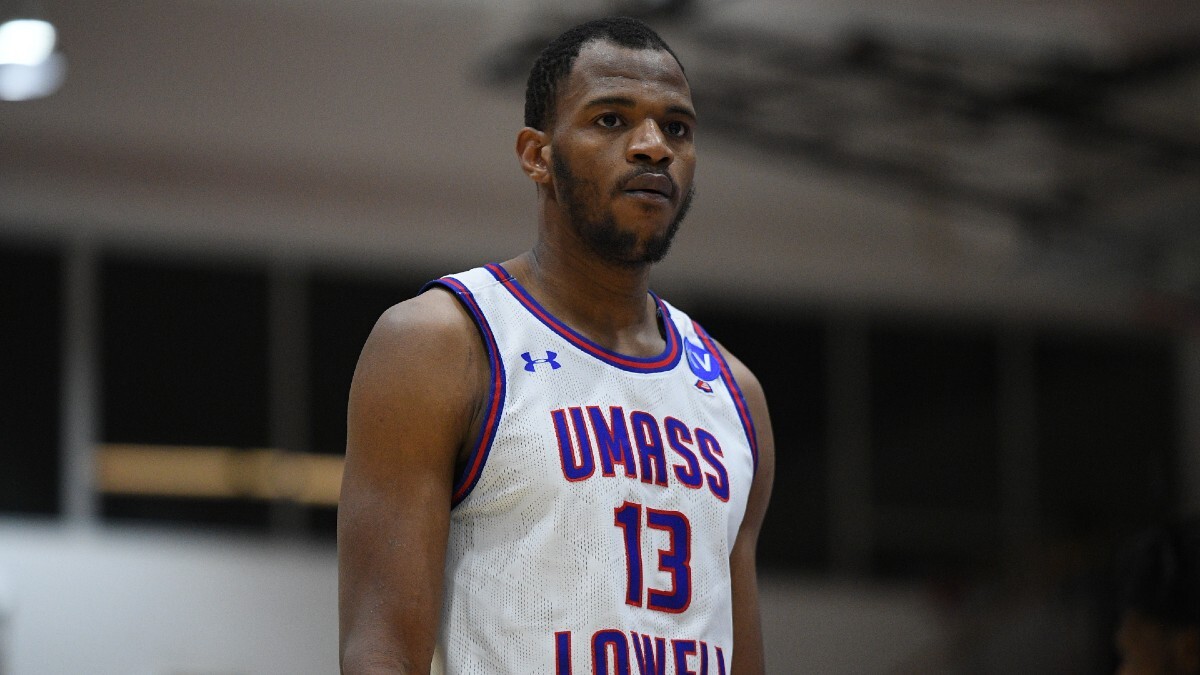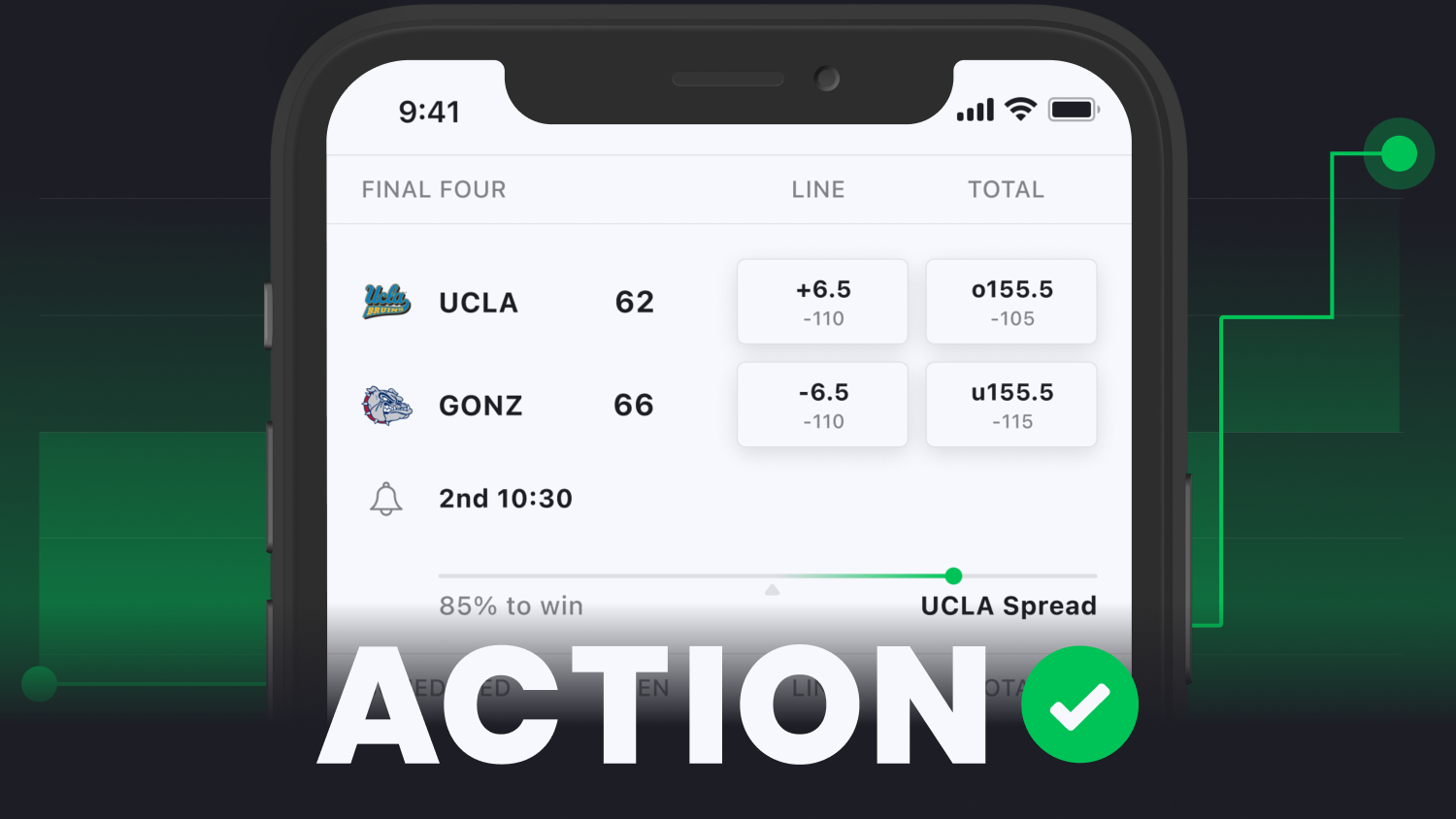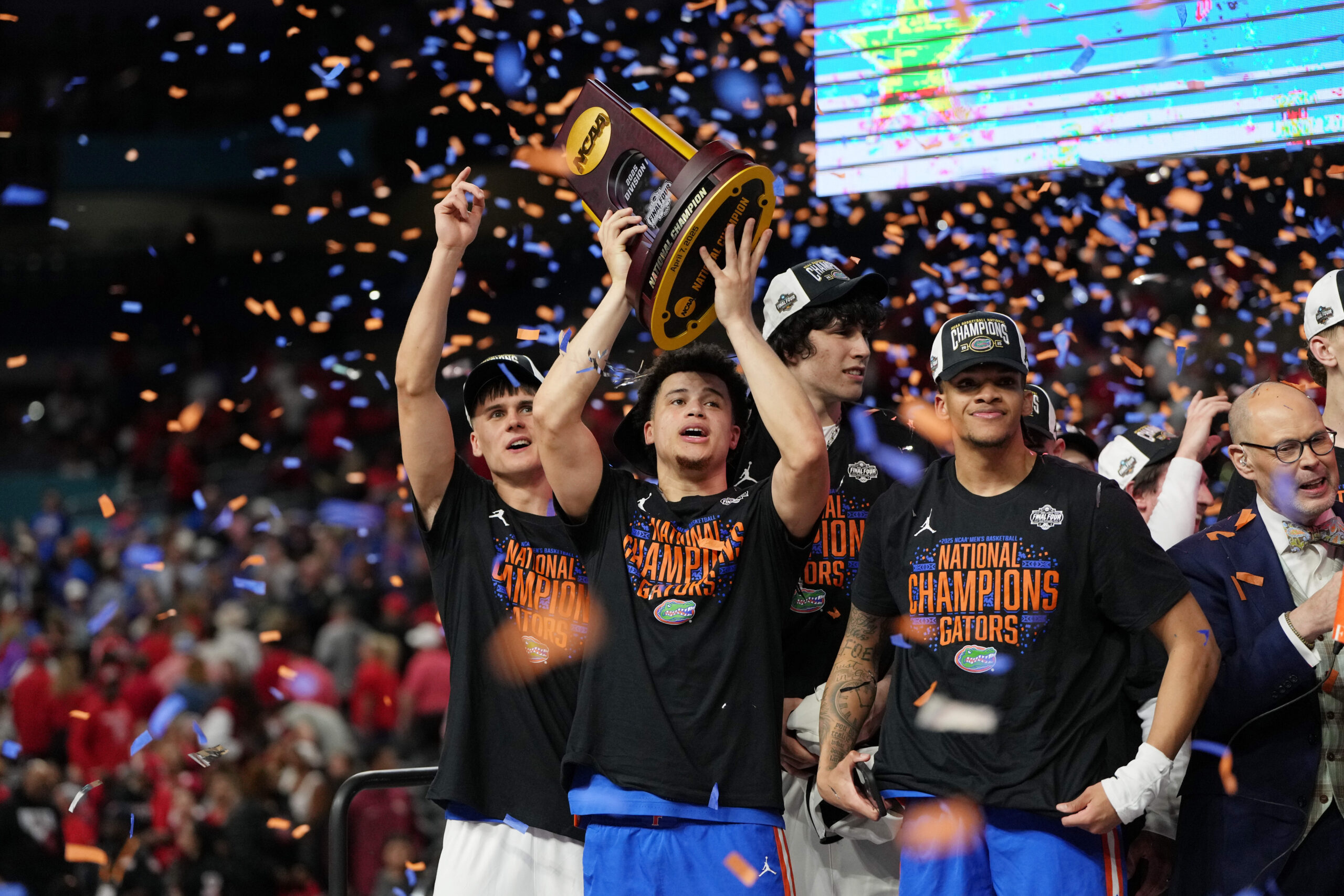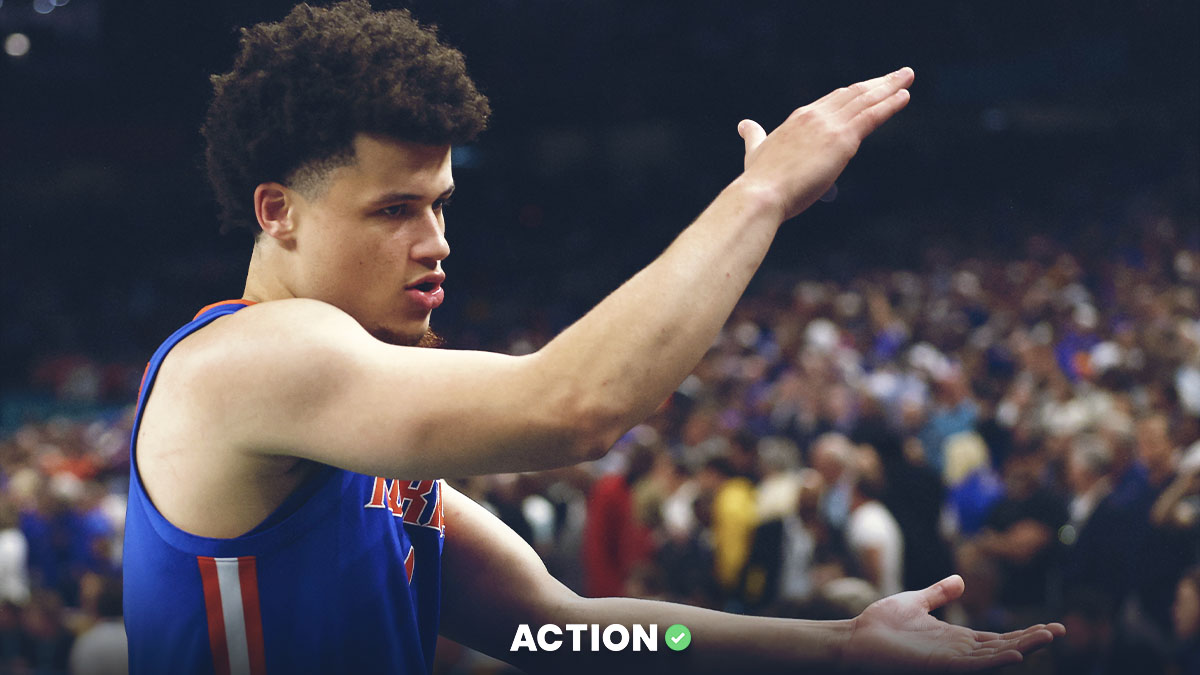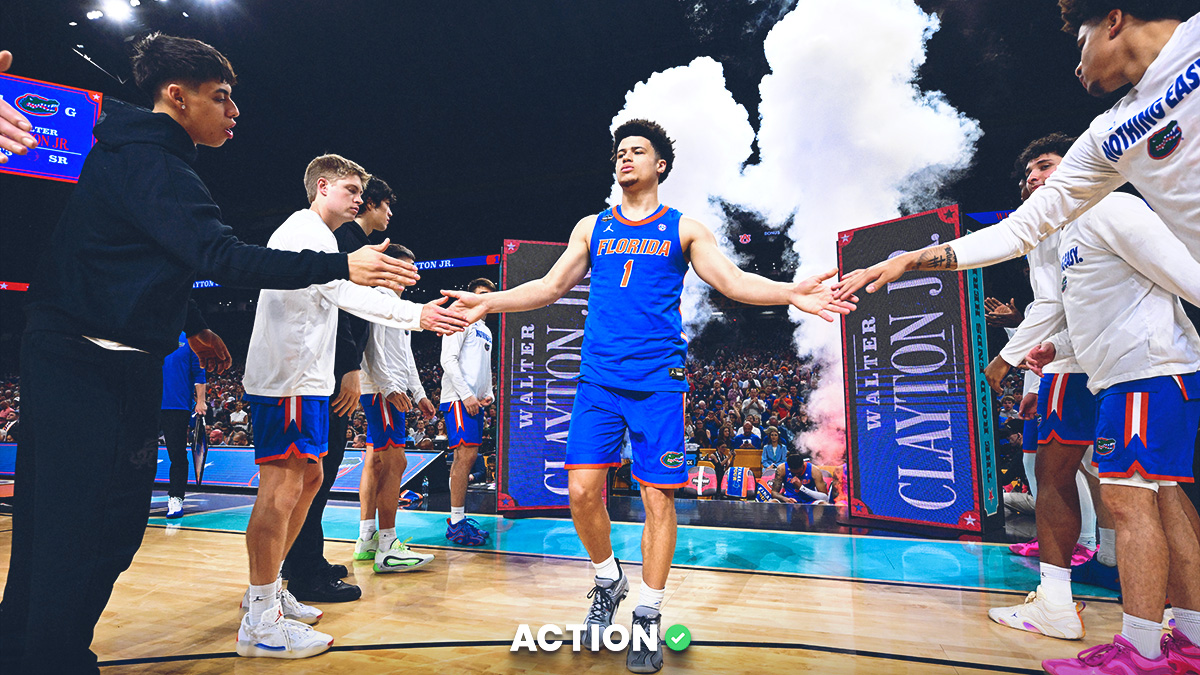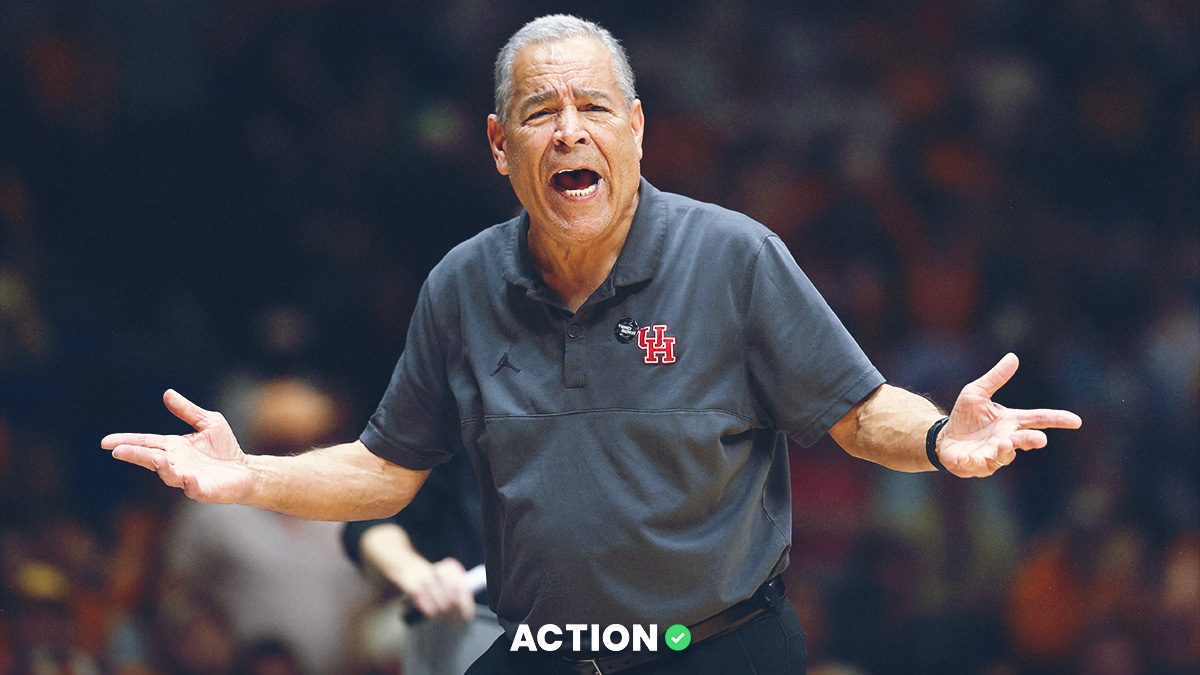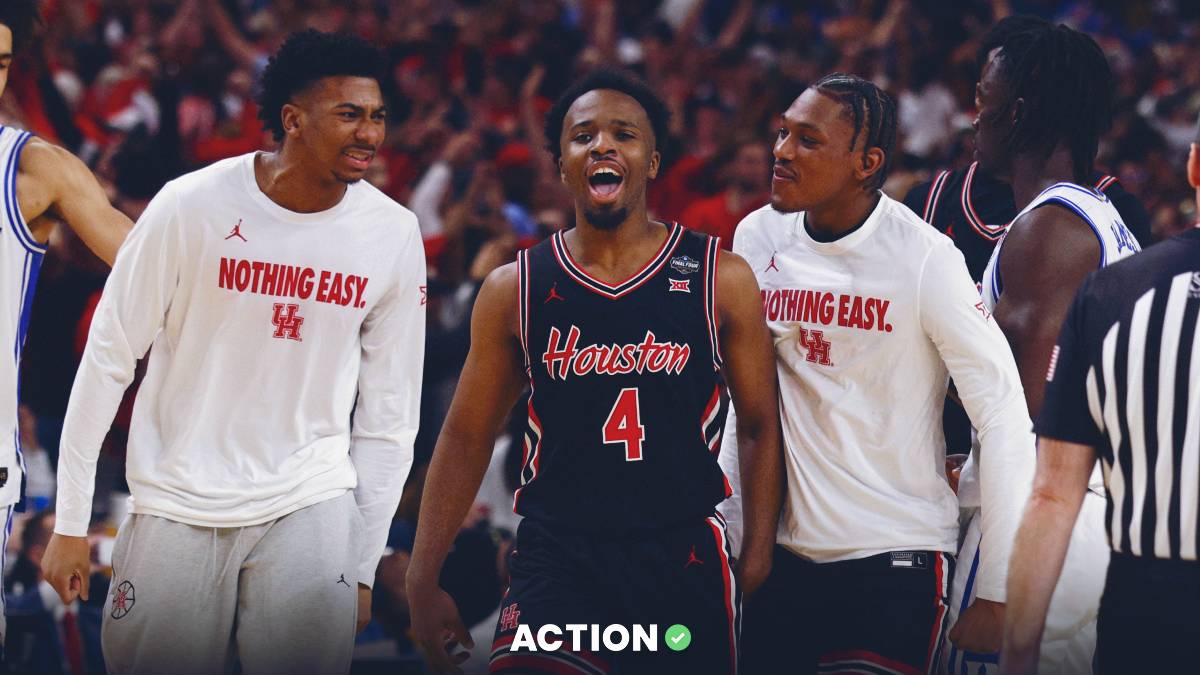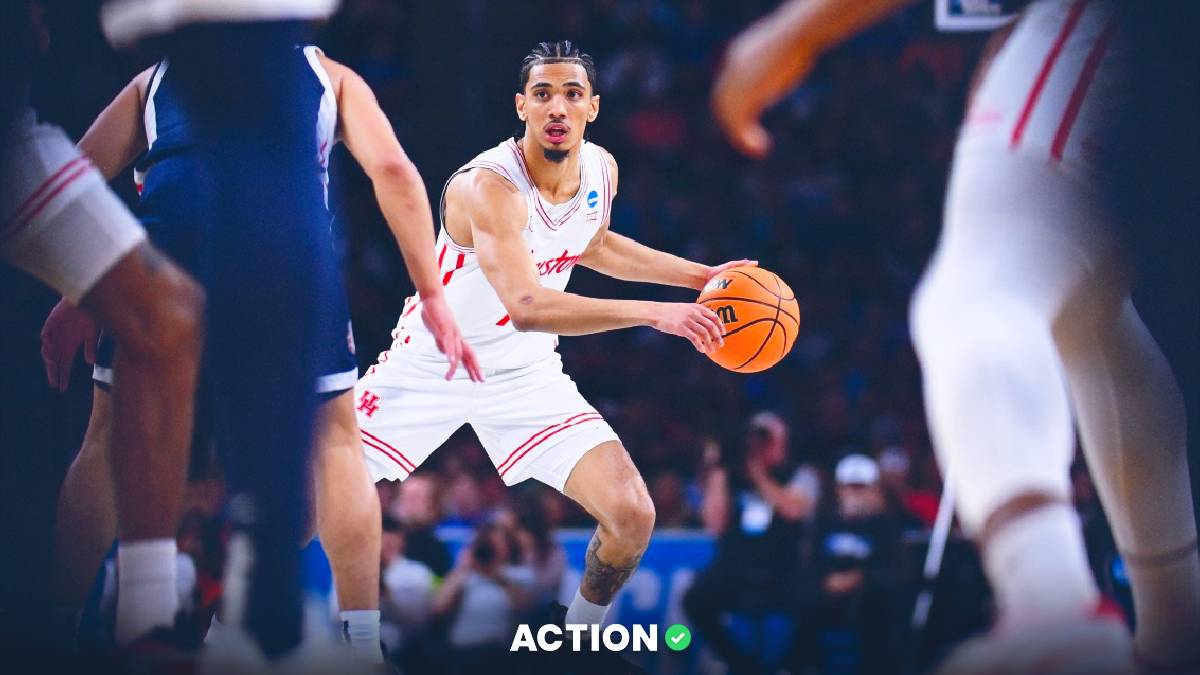Vermont vs UMass Lowell Odds, Pick
| Vermont Odds | ||
|---|---|---|
| Spread | Total | Moneyline |
+1.5 -110 | 139.5 -110o / -110u | +105 |
| UMass Lowell Odds | ||
|---|---|---|
| Spread | Total | Moneyline |
-1.5 -110 | 139.5 -110o / -110u | -125 |
I’m a diehard America East college basketball fan. A conference fanatic, if you will.
So, it’s impossible to overstate my excitement for Vermont-Lowell. The two AmEast powerhouses are the favorites to cut down the nets in March – although Bryant has stormed up the odds boards, I’m still relatively higher on the former two.
These are two of the three remaining undefeated conference teams, with Lowell sitting 5-0 in AmEast play and Vermont at 4-0.
While both suffered a surprising scare against UMBC, neither has been thoroughly tested. We’ll learn plenty about the Catamounts and River Hawks on Thursday night in Lowell.
I’m unsure how it’ll shake out, but I’m happy throwing my money behind the River Hawks in a good schematic spot.
The sharpshooting Catamounts are back.
John Becker’s five-out motion offense is predicated upon spacing and shot-making. So far, so good, as they rank first in conference play in ShotQuality’s Spacing and Shot Making metrics while ranking fourth nationally in Open 3 Rate.
As a result, they rank first during conference play in Offensive Efficiency and eFG%, checking in with crazy-high 114.8 and 56.7% marks, respectively.
Vermont is Mariana Trench-level deep at guard. There are six guys I’d trust to hang in the backcourt, ranging from elite shot-makers TJ Long and TJ Hurley (combined 1.3 PPP in spot-up situations, 93rd percentile) to two-way bulldogs Shamir Bogues, Jace Roquemore and Brenton Mills.
Becker always gets his guards in line by the time February and March roll around, and he might be ahead of schedule this year, even with all the transfers.
Eight different guys have led the Cats in scoring this year. Eight!
But I worry about Aaron Deloney. He was the preseason runaway favorite to be AmEast POY, yet he's been almost invisible, scoring a meager nine points per game while shooting an unimpressive 29% from 3. He's great when he plays aggressively and makes quick decisions on drives and kick-outs while drawing fouls.
But he's often too hesitant, seemingly scared to step into that go-to-guy role.
He's been inconsistent but has scored in double-digits in his past two contests. I can only hope he's turning a corner.
Meanwhile, Matt Veretto is arguably the best stretch forward in the mid-majors. He’s shooting 35% from 3 and has shown crazy range, draining seven of his 21 attempts from over 25 feet out.
I think Veretto has legitimate NBA range, which not many low-major forwards can say. He’s so valuable in Becker’s five-out.
He’s also surprisingly efficient off the short roll, which is also huge in Becker’s system. When Vermont can’t find a calculated, catch-and-shoot or off-the-dribble 3, the Cats will run ball screens to try and pop open bigs behind the spaced-out defenders.
Veretto scores 1.4 PPP on those sets, ranking in the 90th percentile of D-I players, and he’s happy to use his vision and crisp passing to rip the ball back out to the perimeter.
Similarly, Ileri Ayo-Faleye has developed a 3-point shot (9-for-21 this year), so he can stay on the court more in Becker's five-out.
Opposing defenders have to respect him now, meaning Becker isn't sacrificing spacing for defense. In the past, Colgate's Jeff Woodward could sag tightly into the paint and throw the Cats' half-court set out of whack, but no more of that:
His newfound shooting prowess cannot be understated, as Ayo-Faleye is the team's best all-around defender. His athleticism and versatility make him a great on-ball post defender and rim protector.
Unfortunately, I'm worried about Vermont's interior defense as a whole, even if it looked slightly better during conference play.
Among the 362 D-I teams, Vermont ranks 351st in at-the-rim PPP allowed (1.24) and 327th in post-up PPP allowed (.85). The Cats are still allowing over 30 paint points per game in conference play – including 36 to UMBC – which is better than non-conference play but still problematic.
The Cats are running more two-big lineups this year than in years prior because they’re relatively deeper in the frontcourt. So, while Ayo-Faleye is an excellent low-post defender, Veretto and Nick Fiorillo are struggling ones. If opposing big men switch to the weaker bigs, it’s barbecue chicken.
However, swingman Sam Alamutu is seeing more minutes, and he's been playing surprisingly solid post-up defense (.72 PPP allowed, 69th percentile) while flashing as an awkward but effective scorer (59% from 3, 57% from 3).
He scored 13 on 7-for-9 (2-for-2) shooting in the Cats' most recent win over Binghamton, and I'm closely monitoring his development.
If we see more of that guy in a bigger role, Fiorillo's second-team power-forward seat could be scorching.
Vermont is still an excellent defensive rebounding team – as all Becker-led squads are – and the Cats never foul on defense, which helps their efficiency numbers. That said, they’re a relatively passive, compact defense, so they rarely generate turnovers and can be prone to allowing 3s.
Now that Abdoul Karim Coulibaly is back, the River Hawks are back.
His injury was the great America East mystery this non-conference season, as he missed nine games between Dec. 2 and Jan. 6 with an undisclosed, altogether ignored injury. Seriously, Pat Duquette and the program never once spoke about his absence.
Without him, everything falls apart for Lowell. His interior scoring is essential for the River Hawks, not only because he’s so efficient in the post (1.3 PPP, 98th percentile) but also because he demands a double-team, opening up the perimeter for 3s and lanes for Ayinde Hikim to drive through.
But when he’s not on the court, opposing defenses can let up on the interior, playing more aggressively against the turnover-prone guards and running shooters off the 3-point line. Lowell’s shooting goes in the toilet when Coulibaly’s not on the floor.
The Hawks went 3-5 ATS without him, including outright losses to Merrimack and Central Connecticut as double-digit favorites.
But everything changes when he’s back on the court. The River Hawks turn back into the conference's best two-way interior squad.
Coulibaly and Max Brooks score like crazy on the interior, spearheading an offense that scored 38 paint points per game while ranking 10th nationally in percentage of shots taken at the rim last season. And, of course, elite interior scoring opens the perimeter up for the shooters to shoot.
For example, Lowell shot under 30% in the non-con but is hitting 34% across its five conference games, getting better looks now that defenses are forced to respect Coulibaly on the block.
The River Hawks are struggling to compensate for all the shooting they lost in the past offseason — 62% of their made 3s left the program. But Yuri Covington is a reliable shooter, and swingman Brayden O'Connor is coming into his own, making 13 of his 20 attempts over five conference games.
I still think O'Connor is the key to unlocking Lowell's potential. He's an X-Factor who can get to any spot on the floor with his deep bag, make most of the shots and draw fouls at an elite rate (46% free-throw rate across five conference games, fifth among AmEast players).
Many, including me, picked him as the AmEast breakout player to watch, given he flashed so much potential as a freshman and now has more opportunity with some of last year's wings departing.
I think he's starting to settle into his all-important role, averaging 14 points per game over the past five while peaking with a 21-point effort against NJIT and a 19-point effort against New Hampshire.
Lowell needs his shooting and perimeter playmaking. If he flys high, he might be staring down Terrence Shannon Jr. in the tournament's first round (at least according to Joe Lunardi).
The Brooks-Coulibaly duo is elite at defending the rim, leading the league in block rate while ranking 14th nationally in 2-point shooting allowed, 18th in post-up PPP allowed and seventh in at-the-rim PPP allowed last year.
Brooks is still the best interior defender and rim protector in the conference.
And, of course, elite interior defense means the perimeter defenders can go crazy, forcing turnovers and running everyone off the 3-point line.
The Hawks have been particularly adept at the latter this year. They rank 34th nationally in Open 3 Rate allowed and first in catch-and-shoot 3-point PPP allowed. They’re closing out on 64% of catch-and-shooters, better than all but 35 college basketball defenses.
The River Hawks are due for plenty of 3-point shooting regression on defense, as no team can hold opponents to 25% shooting from deep forever — ShotQuality projects opponents should be shooting closer to 32% based on the "quality" of attempts allowed.
Still, the Hawks are viciously denying solid 3-point looks, which must make Duquette very happy.
I’m still worried about the River Hawks’ turnover issues, with Hikim averaging four per game, including throwing the ball away 18 times across five conference games.

Vermont vs. UMass Lowell
Betting Pick & Prediction
But I’m not too worried about Hikim’s turnover issues against a passive Vermont defense that doesn’t care to force turnovers.
Even better, the River Hawks’ Coulibably-oriented interior offense should have no problem shredding Vermont’s dubious interior defense. If Duquette gets Coulibaly on Veretto, the River Hawks are home free.
Meanwhile, Lowell’s ability to run shooters off the perimeter is key in this matchup. Vermont’s entire persona is built around the 3-point shot, and Lowell will close out tight on every Catamount guard or stretch forward.
Lowell is vulnerable against short-roll action, so Veretto could eat here. But its defensive numbers are mainly from non-Coulibaly minutes, so the metrics likely undervalue the Hawks' roll-man defense.
For what it's worth, Coulibaly’s injury is still a concern, as he hasn’t played more than 16 minutes in any game since returning. That said, Duquette hasn’t needed to push, as the Hawks blew out Binghamton and Albany, and he played his big man most in the team’s biggest crunch-time win, a four-point victory over UMBC.
So, I expect Coulibaly to see the floor plenty in the Hawks’ most significant game of the season.
Vermont won two of three against Lowell last season, but both came up in Burlington at the ever-imposing Patrick Gymnasium. Down in Lowell, the Hawks smashed Vermont by scoring 14 post-up points on 12 possessions and hitting 13 of their 22 mostly-open 3s — 12 of their 20 catch-and-shoot opportunities came unguarded — in a 15-point win.
Home-court advantage is paramount in the America East. While the league currently ranks dead last among D-I conferences in home win rate (40%), that’s likely a small-sample-size variance issue, as it was first in that stat last year (68%).
I interviewed Duquette for my preseason America East conference preview piece, and I asked him how the River Hawks could get over the hump and beat Vermont to reach the NCAA Tournament for the first time in program history.
His response:
“I think it’s real simple: Play a home playoff game. It’s just really hard to win on anybody’s court, especially up in Vermont.”
He’s right. The Hawks have beaten Vermont at Costello Athletic Center in two of the past three seasons, and they can do it again on Thursday.
Coulibaly should score against Vermont’s interior defense, Hikim should avoid crucial turnovers, Lowell should defend crucial Catamount 3s, and the Hawks should manage a home victory in the AmEast’s biggest game of the year (so far).
Projections make the spread closer to Lowell -3/-4, so I'd play the River Hawks anything short of that.
Pick: UMass Lowell -1.5 (Play to -2.5)
ESPN Bet is now live! Make sure you're ready for all the action with our exclusive ESPN BET promo code TANBONUS.


